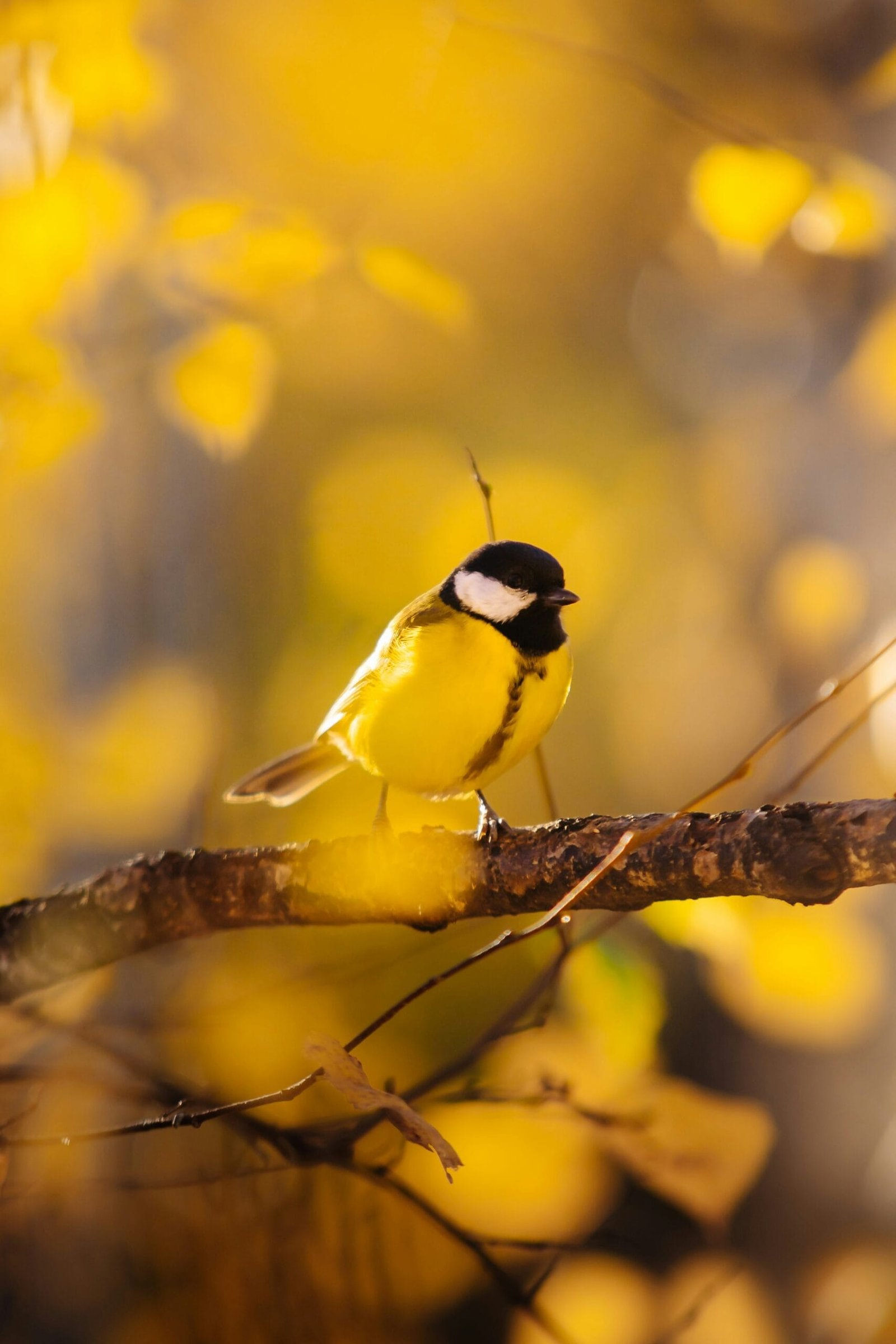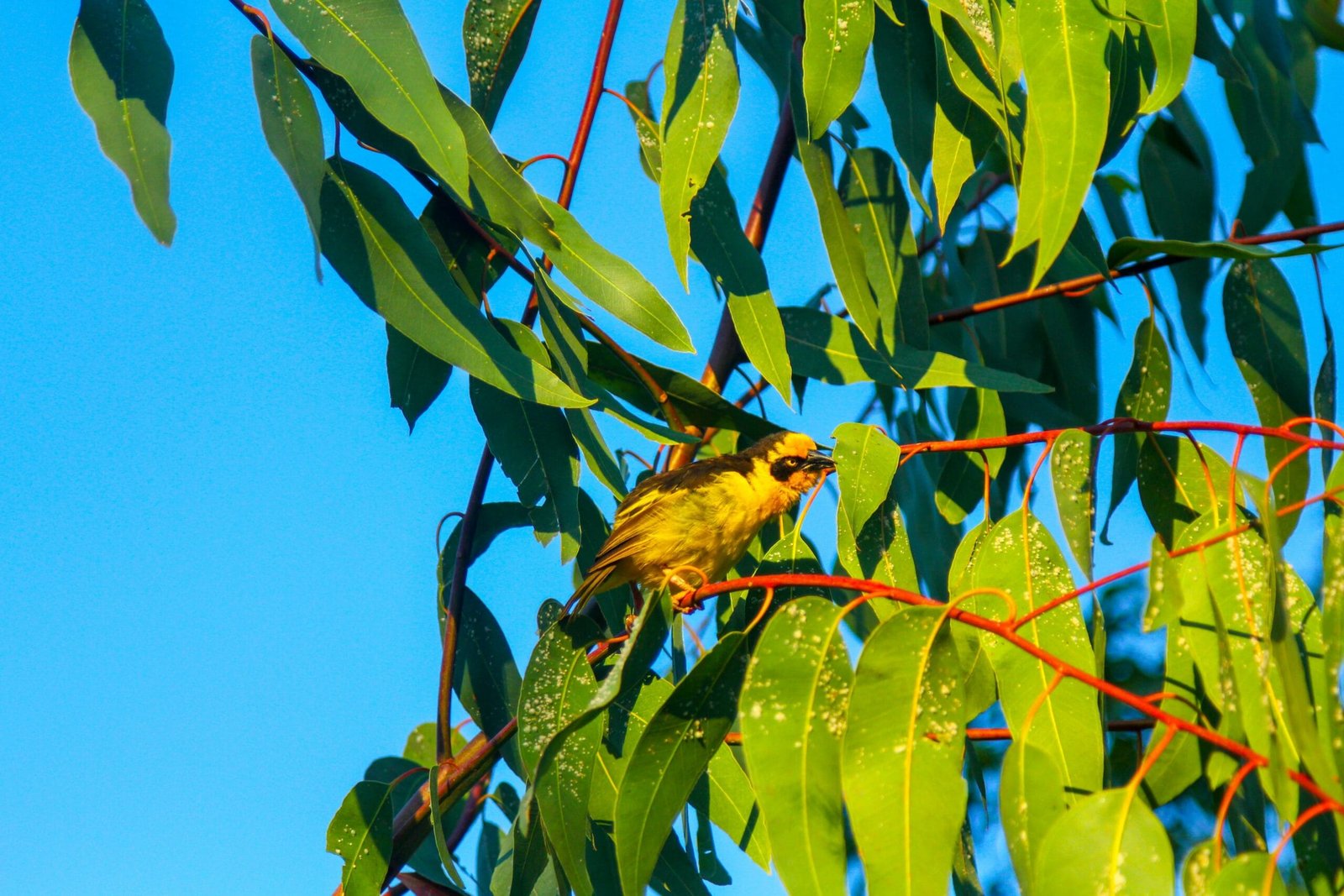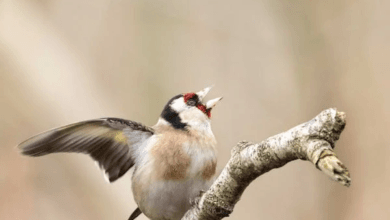The Ultimate Guide to a Canary’s Favorite Foods: Seeds, Fruits, and Veggies

Introduction to a Canary’s Diet
Canaries, known for their vibrant colors and melodious songs, are delightful companions for bird enthusiasts. Understanding their dietary habits is essential for ensuring their health and well-being. In the wild, canaries exhibit omnivorous behavior, consuming a variety of foods that contribute to their nutritional needs. This natural inclination towards a diverse diet is crucial, as it allows them to obtain a balanced intake of essential vitamins, minerals, and nutrients.
In their native habitats, typically found in the Canary Islands, these birds feast on seeds, fruits, and insects. The consumption of seeds forms a significant part of their diet, but it is the inclusion of fruits and vegetables that enhances their overall health. This variety is vital in maintaining their energy levels and supporting their immune system. For instance, fruits provide natural sugars and hydration, while vegetables contribute fiber and additional vitamins that are crucial for digestion and overall wellbeing.
Feeding pet canaries a mix of high-quality seeds combined with fresh fruits and vegetables can help replicate their natural dietary habits. Seed mixtures designed for canaries often include millets, canary grass seeds, and other nutritious grains. Alongside seeds, offering fresh produce such as apples, carrots, and dark leafy greens can greatly benefit their health. The inclusion of these food types not only introduces necessary nutrients but also stimulates their natural foraging behavior, keeping them mentally engaged and active.
In conclusion, a varied diet comprising seeds, fruits, and vegetables is essential for canaries to thrive. By understanding and mimicking their natural feeding patterns, caregivers can ensure that these charming birds enjoy a long, healthy life filled with vitality and color.
Favorite Seeds for Canaries
Canaries are small, vibrant birds that thrive on a diet that includes a variety of seeds. Among the most favored options are millet and canary seed, both of which provide essential nutrients and energy necessary for their lively lifestyles. Millet, often considered a staple seed for canaries, comes in both proso and golden varieties. Rich in carbohydrates, it serves as an excellent energy source, making it especially beneficial for active birds. Additionally, millet contains vital fatty acids, minerals, and fiber that promote good digestive health and overall well-being.
Canary seed, on the other hand, is another critical component of a canary’s diet. Often recognized by its oval shape and pale color, canary seed is high in protein and healthy fats, which are crucial for muscle development and feather quality. This nutty-flavored seed supports the energy levels of canaries, ensuring that they remain active and healthy. When combined, millet and canary seed create a balanced nutritional foundation that is easily digestible for these delightful birds.
To ensure canaries receive the maximum benefits from their seed diet, it is important to mix these seeds appropriately. A common recommendation is to combine approximately 70% millet with 30% canary seed. This ratio allows canaries to enjoy the best of both worlds while maintaining a balanced intake of nutrients. Offering seeds in a shallow dish or a specialized seed feeder can help prevent waste and promote better eating habits. Furthermore, it is essential to provide fresh seeds regularly, as stale seeds can lose their nutritional value, which may adversely affect the canary’s health. By understanding and implementing these dietary guidelines, canary owners can help ensure their feathered companions thrive on their favored seeds.
Fruits That Delight Canaries
Canaries are known for their melodious songs and vibrant feathers, but a crucial aspect of their health is their diet, particularly the fruits they delight in. Including fruits in a canary’s diet can provide essential vitamins and minerals, leading to improved overall well-being. Among the most favored fruits are apples and various berries, which offer numerous health benefits. Apples, for instance, are rich in vitamin C and dietary fiber, contributing to better digestion and enhanced immune function. The antioxidant properties of apples help protect canaries from oxidative stress and promote a longer, healthier life.
Berries, such as blueberries, strawberries, and raspberries, are not only tasty but also packed with vitamins A, C, and K, along with vital antioxidants. These nutrients are instrumental in maintaining cellular health and improving the canary’s coat quality. Berries also support hydration, as they have a high water content, ensuring that your feathered friend stays refreshed, especially in warm weather.
When introducing new fruits into a canary’s diet, it is essential to do so gradually and observe any changes in their behavior or health. Start by offering small pieces of fruit, ensuring they are thoroughly washed to remove any pesticides or chemicals that could be harmful. It is also advisable to remove any seeds from fruits before offering them to your canary, as some seeds can be toxic. Always monitor the quantity of fruit provided, since too much can lead to digestive issues due to the natural sugars present in fruits.
Overall, incorporating a variety of fruits, like apples and berries, into your canary’s diet can greatly enhance their nutritional intake while keeping their taste buds stimulated. Regularly offering fruits adds diversity to their meals and supports their health, making it an essential component of a balanced diet for these charming birds.
Vegetables Canaries Love
Providing a balanced diet for canaries is essential to their overall health and well-being. Incorporating vegetables into their daily meals not only offers essential nutrients but also stimulates their taste buds and encourages exploration. Among the various vegetables available, carrots and spinach have emerged as favorites among canaries. These nutrient-rich options are beneficial for their growth and vitality, making them an ideal addition to their diet.
Carrots are an excellent choice due to their high beta-carotene content, which is converted to vitamin A in a canary’s body. This vitamin is crucial for maintaining healthy feathers, skin, and vision. Additionally, carrots contain dietary fiber, which promotes digestive health, an important aspect of keeping a canary active and healthy. To serve carrots, it is best to provide them either raw, finely chopped, or grated. This preparation not only makes it easier for canaries to consume but also adds variety to their feeding routine.
On the other hand, spinach offers another array of health benefits. This leafy green is rich in vitamins A, C, and K, along with iron and calcium, which reinforce a canary’s immune system and support bone health. However, moderation is key, as spinach contains oxalates that can interfere with calcium absorption if consumed in excessive quantities. Offering spinach in small amounts—either fresh or lightly steamed—ensures that canaries enjoy its nutritional benefits without the risk associated with overconsumption.
In presenting vegetables, it is crucial to wash them thoroughly to remove any pesticides or contaminants. Canaries are often more inclined to try new foods when they are freshly prepared and offered in appealing ways. Using small dishes or hanging vegetable pieces can make the feeding experience more engaging for these inquisitive birds. By reinforcing the importance of vegetables such as carrots and spinach, caregivers can significantly enhance their canary’s diet and contribute to their overall wellness.
Creating a Balanced Diet for Your Canary
Providing a balanced diet for your canary is essential for its health and wellbeing. A well-rounded diet includes a variety of seeds, fruits, and vegetables that cater to the nutritional needs of your bird. It is important to create a diet plan that promotes optimal health while considering the individual preferences of your canary. A common approach to diet formulation involves using a base of commercial seed mixes specifically designed for canaries, which often includes a mixture of small seeds such as canary grass seed, millet, and oats to provide the necessary protein and energy.
In addition to seeds, fruits and vegetables should be incorporated to ensure that your canary receives essential vitamins and minerals. Leafy greens like kale, spinach, and dandelion greens can be excellent additions, as they provide vital nutrients. Small portions of fruits such as apples, pears, or berries can be offered as treats; however, make sure they are cut into bite-sized pieces to make them easier for your canary to consume.
When determining portion sizes, it is recommended to provide about one tablespoon of seeds combined with a variety of fruits and vegetables each day for one canary. Adjusting this quantity based on your bird’s activity level, age, and health status is critical. Young and active canaries may require more food, while older or less active birds might need a reduced portion. It is wise to maintain a consistent daily feeding schedule, offering fresh food in the morning and removing uneaten food at the end of the day to promote freshness and hygiene.
Ultimately, fostering a balanced diet for your canary involves observing its eating habits and adjusting the offerings accordingly. Regularly rotating the types of fruits and vegetables can keep mealtime exciting while addressing nutritional variety. With thoughtful consideration, you can create a nutritious diet that fulfills your canary’s dietary needs. This will not only enhance its health but will also contribute to its overall happiness and vitality.
Nutritional Benefits of Each Food Group
Understanding the nutritional requirements of canaries is essential for their overall health and well-being. Each food group—seeds, fruits, and vegetables—plays a pivotal role in providing the necessary nutrients that contribute to a canary’s vitality and longevity.
Firstly, seeds are the cornerstone of a canary’s diet. They are rich in fats, which serve as a concentrated source of energy, especially crucial for active birds. Seeds such as millet, canary grass, and flaxseed also contain essential proteins that contribute to muscle development and repair. Additionally, seeds provide dietary fiber, which aids in digestion. However, it is important to balance seed consumption with other food groups to prevent obesity and related health issues.
Fruits, on the other hand, are an excellent source of vitamins, particularly Vitamin C and various antioxidants. These nutrients bolster the immune system and help protect canaries from diseases. Fruits like apples, berries, and oranges offer hydration, as they contain a significant amount of water, thereby promoting healthy kidney function. Moreover, the natural sugars found in fruits provide quick energy, making them beneficial as supplementary treats.
Finally, vegetables are often overlooked but are crucial for a balanced canary diet. Vegetables such as carrots, spinach, and broccoli are loaded with vitamins A, K, and numerous minerals, which support overall bodily functions and processes. These nutrients contribute to healthy feather growth and vibrant coloration, enhancing a canary’s appearance. Furthermore, the high fiber content in vegetables aids in digestion and promotes a healthy gut.
In essence, the combination of seeds, fruits, and vegetables forms a holistic diet that ensures canaries receive a comprehensive range of essential nutrients. Each group complements the others, providing an array of proteins, carbohydrates, vitamins, and minerals necessary for a thriving canary.
How to Safely Prepare and Serve Food
When it comes to ensuring that canaries receive a nutritious and safe diet, proper food preparation is crucial. The first step is to always wash fruits and vegetables thoroughly. This process helps to remove any pesticides, dirt, or harmful bacteria that may be present on the surface. It is advisable to use water that is free from contaminants and, if possible, to opt for organic produce to minimize exposure to chemicals.
Once the produce has been cleaned, the next step is to prepare it in a way that is manageable for your canary. Cutting fruits and vegetables into small, bite-sized pieces is essential. This not only makes it easier for the bird to eat but also minimizes the risk of choking. For fruits with tougher skins, such as apples and pears, it is often beneficial to peel them before serving. Additionally, removing any seeds or pits is critical, as some seeds can be toxic to birds.
Storage of the prepared food is another important consideration. Fresh fruits and vegetables should be served promptly to maximize their nutritional benefits. However, if there are leftovers, they should be stored in the refrigerator in an airtight container to maintain freshness. It is important to consume any remaining food within 24 hours to avoid spoilage. Regularly checking for signs of wilting or decay can help in managing the health of your canary’s diet effectively.
In summary, by following these best practices for preparing and serving food, you can ensure that your canary enjoys a safe and wholesome diet. Doing so not only promotes their health but also contributes to their happiness and overall well-being.
Foods to Avoid for Canaries
When caring for canaries, it is crucial to ensure that their diet is not only nutritious but also safe. Certain foods, while appealing to humans, can pose significant health risks to these delicate birds. Understanding which items should be strictly avoided is essential for every canary owner.
One of the most notorious foods to eliminate from a canary’s diet is avocado. This popular fruit contains a toxin called persin, which can be harmful, even fatal, to birds. The ingestion of avocado can lead to respiratory distress, cardiac issues, and other serious health complications. Therefore, it is vital to keep this fruit out of reach to prevent accidental consumption.
Another commonly known hazard is chocolate. While many enjoy this sweet delicacy, chocolate contains theobromine and caffeine, both of which are toxic to birds. Consuming even a small amount of chocolate can result in hyperactivity, vomiting, and potentially fatal cardiac problems. Consequently, chocolate has no place in a canary’s diet.
Caffeine should also be avoided entirely. Present in coffee, tea, and certain sodas, caffeine stimulates the heart and nervous system excessively in canaries, leading to restlessness, heart palpitations, and potentially severe reactions. It is essential to remember that these small birds have different metabolic processes and tolerances than humans do, making them more vulnerable to these substances.
Other foods to avoid include onions, garlic, and any high-sugar or high-salt items, as they can disrupt a canary’s digestive system and overall health. Maintaining a safe and appropriate diet is paramount for keeping your canary healthy and happy, ensuring that only safe, nutritious options are available to them.
Conclusion and Final Tips
In summary, understanding the dietary preferences of canaries is crucial for promoting their health and vitality. Throughout this guide, we explored the essential components of a canary’s diet, focusing on the significance of offering a diverse range of seeds, fruits, and vegetables. It is important to note that canaries, like many other birds, can develop specific likes and dislikes regarding their food, so observing and adapting to these preferences can greatly enhance their eating experience.
Variety is key in ensuring that your canary receives a balanced diet, rich in vitamins and nutrients that contribute to their overall well-being. Incorporating different types of seeds along with a selection of fresh fruits and vegetables not only stimulates their appetite but also promotes mental engagement, as they explore new tastes and textures. Additionally, offering small portions of fresh foods daily can help maintain freshness and encourage your canary to sample different items.
Furthermore, regular monitoring of your canary’s eating habits is vital. Keep an eye on how they respond to new foods and adjust accordingly. While some canaries may readily accept certain fruits or veggies, others might be more selective. Gradual introductions and positive reinforcement can aid in developing a varied and nutritious diet.
Lastly, consultation with a veterinarian knowledgeable in avian care is highly recommended. They can provide tailored advice based on your canary’s health status, age, and any dietary changes that may be necessary. Ensuring your feathered friend receives the right nutrition is not just about filling their food bowl; it is an ongoing commitment to their health and happiness.


